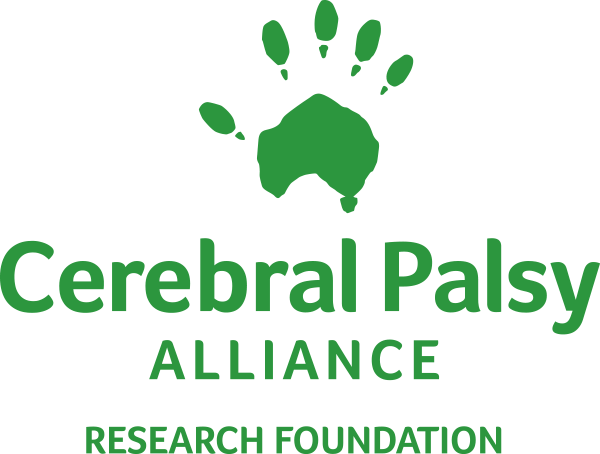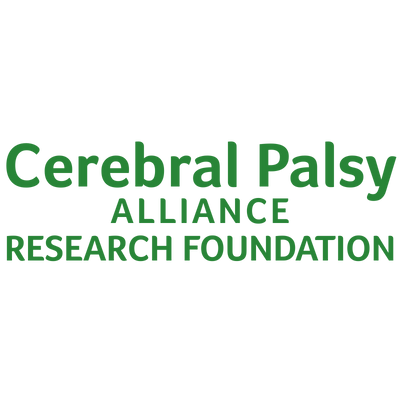
NSW CEREBRAL PALSY REGISTER
Research Institute of Cerebral Palsy Alliance
$150,000
Sydney, New South Wales
The Australian Cerebral Palsy Register, launched by Professor Fiona Stanley AC, is a confidential research data base of information about people with cerebral palsy (CP). The main aims of the Cerebral Palsy Register are to:
Monitor the incidence and prevalence of cerebral palsy
Assist in the planning of services for children and adults who have CP
Gain further understanding about the causes of cerebral palsy
Evaluate preventative strategies
Provide an essential data source for preventative research.
The Research Institute of Cerebral Palsy Alliance is the custodian of the Australian CP Register.

Professor Enrico Coiera
Centre for Health Informatics, University of NSW – Sydney, New South Wales
CEREBRAL PALSY FOUNDATION INNOVATIVE RESEARCH
$120,000 over three years
Using computers to sort the pieces of the cerebral palsy puzzle
Researchers around the world are finding new pieces in the puzzle that is cerebral palsy. But it can be very hard to keep all the pieces of the puzzle in mind while researchers are working through their own small piece of it.
Professor Enrico Coiera and colleagues are working to develop computer systems that are powerful enough, and simple enough, for researchers to use, saving time and effort globally. Ideally, these computer systems would be able to pull together data from many different published researcher projects, cerebral palsy registers and databases. Then, by asking the right questions, new answers concerning the causes of cerebral palsy may appear.
This research project is unique in the world of cerebral palsy.
Professor Enrico Coiera is Director of the Centre for Health Informatics at the University of New South Wales. The Centre is the largest, longest-running and most successful academic research group in this new field of applying computer science and technology to health care.

Professor Alastair MacLennan
The University of Adelaide; Women’s & Children’s Hospital North Adelaide – Adelaide, South Australia
CEREBRAL PALSY FOUNDATION INNOVATIVE RESEARCH
$115,000 over two years
Searching for causes of cerebral palsy
The causes of cerebral palsy are not yet known. Previous theories about difficult births have been shown to be inaccurate in most cases. Much work needs to be done to understand why some children, and not others, develop cerebral palsy.
Professor Alastair McLennan and colleagues from the South Australian Cerebral Palsy Research Group have been searching for the causes of cerebral palsy for some time. They have analysed a large number of births details from the South Australian Cerebral Palsy Register and made many significant discoveries. These include, for example, the link between Factor V abnormalities and quadriplegia in children born before 32 weeks gestation.
This research project continues that work, but with an important extra step. They will also look at the health and genetic backgrounds of the mothers of children born with cerebral palsy, which will allow an even greater level of understanding.
Professor Alastair MacLennan is Head of obstetrics and gynaecology at the University of Adelaide, and Head of the South Australian Cerebral Palsy Research Group.
Professor MacLennan’s research interest lies in the apparent links between faulty genes and factors in the child’s environment, such as poor foetal growth and infections in the womb.

Liora Ballin
University of Sydney – Sydney, NSW
HENRY H ROTH FOUNDATION SCHOLARSHIP – NHMRC CO-FUNDED
$40,500 over three years
Augmentative and Alternative Communication (AAC) Training with experienced AAC users as volunteer AAC therapy aides
This doctoral research identifies important aspects of an AAC training program; observes clinical sessions; develops and implements a training program for experienced AAC users to be volunteer therapy aides; develops and implements AAC training with new users paired with experienced users.

Abbey Eeles
University of Melbourne – Melbourne, Victoria
SUNDELL FOUNDATION RESEARCH GRANT– NHMRC CO-FUNDED
$40,500 over three years
Sensory outcomes and profiles over the first two years for infants born less than 30 weeks’ gestation
The sensory experiences preterm infants encounter early in life lay the foundations for future neurodevelopment. While the literature suggests that sensory experiences have an impact on development little is known about the development of sensory functioning in early childhood or the extent to which sensory profiles/outcomes affect the neuro behavioural outcomes of this vulnerable population. This doctoral research aims to examine this relationship and provide direction for future practices.

Sarah Love
Princess Margaret Hospital, Perth – Western Australia
CEREBRAL PALSY FOUNDATION INNOVATIVE RESEARCH
$25,000 over one year
Different types of cerebral palsy – towards different types of prevention and treatment?
There are different sub-types of cerebral palsy – spastic, ataxic and so on. It is possible that some of these sub-types might actually be the result of different conditions, with different causes.
But it is hard for researchers to work this out, because there is no strong agreement about what constitutes one sub-type of cerebral palsy, and what constitutes another.
Sarah Love and colleagues have taken a very important step back to look at the big picture. They are working to gain agreement on the different sub-types of cerebral palsy. Once that happens, researchers will hopefully find it much easier to look for causes of cerebral palsy and the path towards prevention and treatment will be clearer.
Sarah Love is a physiotherapist at Princess Margaret Hospital in Perth. Sarah Love is considered an Australian expert in the assessment of people with cerebral palsy. She is a highly respected teacher, and is a keen collaborator with the Australian Cerebral Palsy Register network. The Australian Cerebral Palsy Register was established in 2007 is a comprehensive database collecting information about individual with cerebral palsy who are born or reside in Australia.

